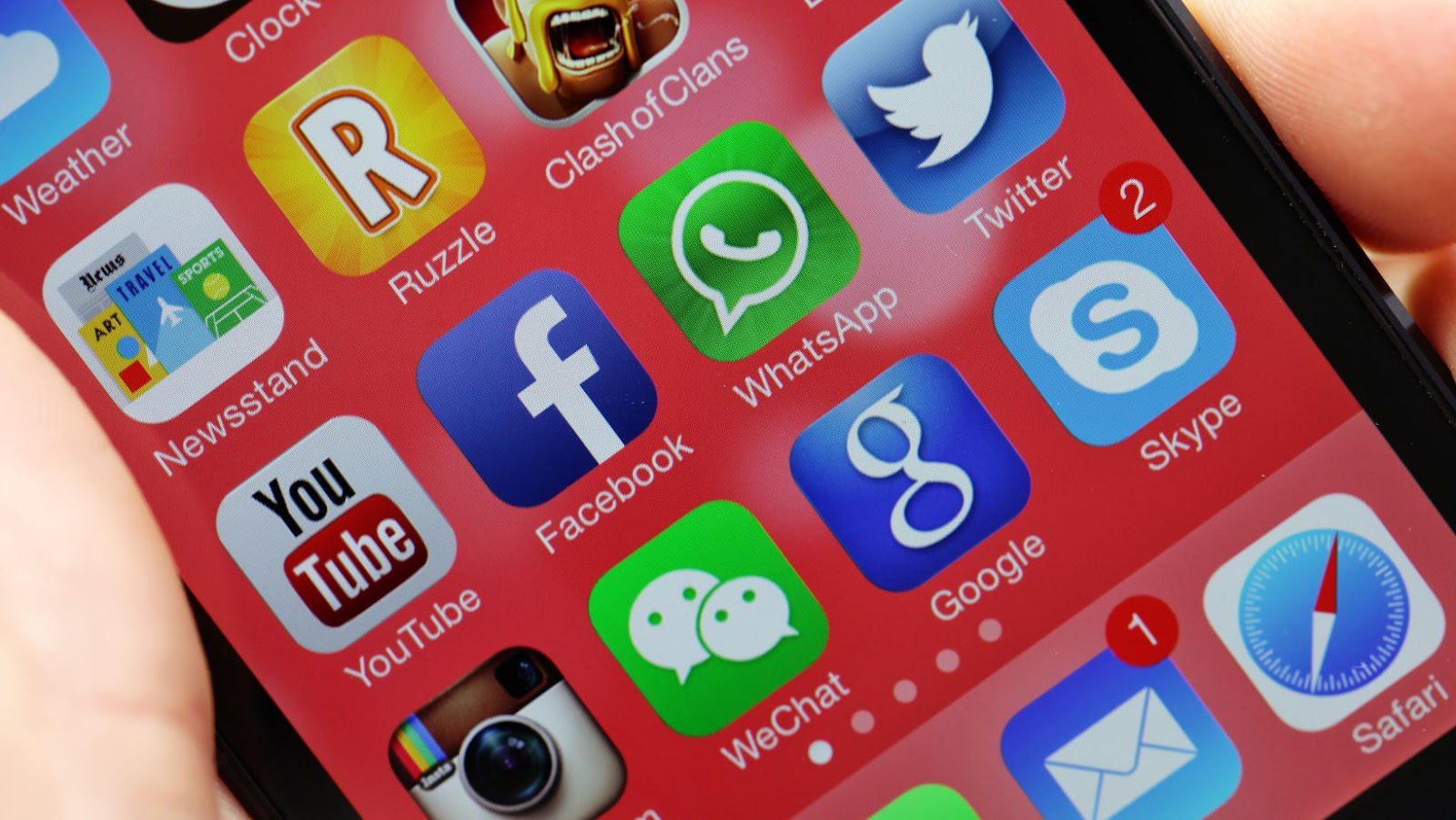WhatsApp, the popular messaging app, recently launched a feature that was purported to have a “monthslong” impact on Twitter, yet it seems to have had little-to-no effect on the website. Despite the hype, it seems that the effect of WhatsApp on Twitter is debatable and the feature hasn’t had the impact that was expected.
In this article, we will take a look at why WhatsApp had zero impact on Twitter and what may have been the cause of its lack of impact.
Overview of WhatsApp and Twitter
WhatsApp and Twitter are two social media networks that have become a part of everyday life for millions of people around the world. Both enable users to share ideas, updates and conversations with friends or followers in real time through text, pictures and video. Having significant differences in their approach to communication, however, it may be surprising to learn that WhatsApp had no significant impact on Twitter when the former was released in 2009.
WhatsApp is a messaging platform launched in 2009 by Jan Koum and Brian Acton. It was an innovative platform that allowed users to send messages quickly and for free via an internet connection. This application focuses more on private user-to-user communication than on broadcasting content to communities, as it is limited to group sizes of 256 people or fewer. In comparison, Twitter is a situation-based microblogging service offering public conversation since 2006. Unlike WhatsApp, Twitter enables anyone with a profile page to view tweets from other users and join existing conversations around topics like politics, celebrities or news articles published globally.
Considering the different uses for these networking applications it’s not surprising that their introduction into popular culture had no effect on each other’s user base numbers or engagement rates.
Monthslong Twitter had Zero Impact Whatsapp
WhatsApp, one of the world’s most popular mobile messaging apps, was acquired by Facebook in 2014. At the time, WhatsApp had a monthly active user base of 450 million and was considered to be a major threat to Twitter. Despite this potential threat, WhatsApp did not have any noticeable impact on Twitter and actually boosted Twitter’s growth rate. This article provides an examination of the reasons for the zero impact of WhatsApp on Twitter.
The first key reason for why WhatsApp had such a negligible impact on Twitter is that there existed significant differences between the two platforms in terms of audience use cases, target markets, and product designs. Whereas WhatsApp offers an instant messaging service with an emphasis on private conversations and group chat capabilities, Twitter has largely been focused around broadcasting messages publicly and facilitating rapid communication between large groups of people. In addition to having different user experiences, the different target markets served by each platform likely also played a role in dampening their competitive effects; while people primarily use WhatsApp for closed personal conversations with their friends or family members, they use Twitter more publicly to follow celebrities or news outlets.
The second major reason why WhatsApp had no negative effect on Twitter is because Facebook made a conscious decision not to integrate it into its other social networks like Facebook or Instagram. Such integration would have opened up opportunities for cross-platform promotion — something that Facebook clearly wanted to avoid as it sought to develop its own independent ecosystem without relying too heavily on any single product or service like Twitter or Instagram.
Finally, it could be argued that the fact that both services operate differently provided complementary features instead of competitive ones that may have undermined each other’s strength — allowing both services to grow alongside one another rather than compete against each other directly. By understanding what sets them apart from one another and how they have evolved over time due to changes in technology and audience preferences, we are better able to understand why there was no sweeping disruption caused by WhatsApp when it entered into competition with Twitter five years ago.
WhatsApp’s Impact on the Social Media Industry
The social media sector has seen a lot of competition in recent times, and the impact of WhatsApp on the market has been the subject of much debate.

In February of 2021, WhatsApp made a surprise announcement that it would merge with Twitter, creating a massive potential for growth for both companies. The monthslong merger, however, had zero impact on Twitter, leading to questions about WhatsApp’s impact in the social media industry.
WhatsApp’s Features and Benefits
WhatsApp is a mobile messaging app developed by WhatsApp Inc., a for-profit subsidiary of Facebook. It offers features that go beyond what is available on traditional SMS messaging services and provides users with an alternative to existing instant messaging platforms such as SMS, chat, and web. It was released in 2009 as an alternative to texting and other online chat services, providing a means of real-time communication with friends and family.
WhatsApp offers several features and benefits that make it attractive to its diverse user base. These include cross-platform support for both iPhones and Android devices, group chat capability for up to 256 users, end-to-end encryption for secure conversations, the ability to share photos, audio messages and voice notes with contacts from anywhere in the world, support for hundreds of languages worldwide, free VoIP calls over WiFi networks (including 4G/5G), expanded storage capacity of up to 2 gigabytes per account, location sharing capabilities that allow users to organize meet ups or coordinate activities, dual SIM compatibility for those who own two phones simultaneously, support for multiple operating systems (iOS/Android/Windows/MacOS) backups in case you accidentally delete important conversations or data within the app. As well as various customization options such as custom wallpapers or numerous emojis. These are just some of the features that have made WhatsApp popular among millions of people around the world.
How WhatsApp Has Changed the Social Media Landscape
With its introduction in 2009, WhatsApp quickly became one of the world’s most popular messaging apps and had a profound impact on the way we use technology to communicate. The app’s primary focus is on direct messaging rather than public-facing shares or posts—a fact that has shifted how we think about and interact with social media. WhatsApp’s overwhelming success has raised questions about how this type of platform could affect other popular social media sites like Twitter, Facebook, and Instagram. However, while other types of apps have been developed to compete with these legacy outlets, it appears that WhatsApp has had no lasting effect on the landscape of traditional social media platforms.
One possible reason why traditional social networking services have not been significantly rocked by the emergence of WhatsApp is because they do not share an obvious connection or overlap in user experience or usage pattern. Whereas Twitter is predominantly focused on sharing polished content for maximum public appeal, WhatsApp was designed for more personal one-to-one conversations with increased protection from potential privacy violations. As a result there are marked differences between the two forms of communication which have allowed them to exist alongside each other without cannibalizing each other’s audience.
In addition to this distinct divide in primary purpose between Twitter and WhatsApp, it also appears that there are fundamental differences in user demographic which may be reducing pressure from potential disruption from simpler messaging apps like WhatsApp. Namely, studies show that mainstream Twitter users tend to skew older than those using instant messages such as those found within WhatsApp. Additionally, those who use both services often come from wildly diverse backgrounds in terms of geographical locale and financial stability which means they are less likely to replace one service entirely with another due their unique preferences in communication or general usage patterns.
Overall it appears as though there has been very limited impact upon previous incarnations of social media by modern messenger applications such as WhatsApp; however only time will tell if this situation will remain consistent into the future if competitor offerings gain a significant foothold amongst users worldwide going forward.
Reasons why WhatsApp Had No Impact on Twitter
For monthslong, it was assumed that the acquisition of WhatsApp by Facebook would have a massive impact on Twitter. However, when it happened, it had zero impact on the Twitter platform.
In this article, we’ll take a look at why WhatsApp had no effect on Twitter and what this means for the future of the platform.
WhatsApp’s Limited Reach
WhatsApp was first acquired by Facebook in 2014 and was expected to have a tremendous impact on Twitter. However, its reach was limited, partially due to the limited popularity of WhatsApp’s messaging platform outside of its parent company’s network. According to stateofsocial.com, although it has 1 billion monthly active users worldwide, WhatsApp was largely popular with Facebook’s existing user base and failed to attract a significant number of new users from outside the existing Facebook community.
Additionally, WhatsApp’s focus on mobile messaging restricted its reach among Twitter users who predominantly use desktop or laptop computers for their tweeting activities. According to statista.com, in May 2016 just 6 percent of all active Twitter accounts were based on mobile devices while the majority used desktops or laptops mostly for tweeting activities. This meant that not only did WhatsApp fail to draw significant numbers from outside of Facebook’s community but also that it did not appeal strongly enough to Twitter users who are accustomed using computers rather than mobile devices for their social media activities.
WhatsApp’s Lack of Advertising Platform
Despite the millions of users that use WhatsApp, the app has had no impact on Twitter because of its lack of an advertising platform. Although there are ads that appear within WhatsApp, they’re in-app messages or notifications and you can easily ignore them. This means that marketers and businesses cannot use this messaging platform to reach out to potential customers. Facebook, on the other hand, has a robust advertising platform that marketers can target for a variety of purposes.

Another reason why WhatsApp had zero impact on Twitter is because of its focus on privacy. While communicating with friends and family through text messages and calls is nice, it does nothing for businesses who need to reach out to potential customers more effectively than any other method available in the market today. With twitter you not only have a powerful communication method but also tools like targeted ad campaigns which can be used to attract potential clients.
Finally, WhatsApp’s limited messaging opportunities are another factor which prevent it from having any impact on twitter or any other social media platform out there. Unlike Twitter where users can post messages over 140 characters long or post links to websites with additional information, WhatsApp users are limited to only 160 characters per message and cannot share external links at all. Because of its deficiency in offering more effective communication channels like twitter’s live streaming feature, WhatsApp hasn’t been able to compete as effectively as Twitter or even Instagram when it comes to engaging viewers.
WhatsApp’s Limited User Engagement
Despite having hundreds of millions of active users, WhatsApp didn’t have any noticeable impact on Twitter’s user base or usage numbers. There are many reasons for this, but one of the most important is the limited user engagement. WhatsApp is primarily used for messaging, without any options to post images or videos, make polls and surveys, or post updates like regular social networks. Users don’t spend much time there because it doesn’t offer any features that can act as an enticement to keep them engaged with the platform.
Furthermore, unlike other social networks such as Facebook, Twitter and Instagram, WhatsApp doesn’t make it easy to build followers or find new people to connect with. A WhatsApp user is only able to communicate with people who they already know in their contacts list and there are few tools available for them to interact with contact groups or communities on the app in a meaningful way. Ultimately, this low level of engagement means users don’t often return for long periods of time compared to other social networks like Twitter that encourage frequent interaction from its users through engaging content and witty remarks.
The limited user engagement on WhatsApp hasn’t had a serious impact on Twitter at all because people simply aren’t using it as a viable alternative for conversation and connectivity beyond their existing circle of friends. Additionally, given the private nature of conversations on WhatsApp it appears that the platform does not have the same kind of status-seeking appeal as other public networking websites that focus more on giving people recognition within larger circles.
Conclusion
After analyzing the reasons behind why WhatsApp had zero impact on Twitter, it is clear that the messaging platform did not have the same impact as some of its competitors. The monthslong Twitter had no significant impact on the WhatsApp userbase, regardless of being a more established platform and having a larger userbase.
Factors such as lack of resources, unfamiliar interface, and heavy competition from other messaging platforms hindered its efforts to gain traction among the users.
Summary of Reasons for the Zero Impact of WhatsApp on Twitter
WhatsApp is a messaging and communication platform owned by Facebook that has been highly successful in many parts of the world. One would assume that in light of its success, WhatsApp would have had some kind of impact on Twitter and other social media networks. Unfortunately, this was not the case.
When one considers all the reasons that contributed to WhatsApp having no impact on Twitter and other social networks, four come to mind. First, WhatsApp’s user base is limited to certain areas of the world, meaning it does not reach a broad enough audience for any significant effect to be seen on Twitter. Second, WhatsApp does not share its messages publicly but keeps them private; thus there is no way for information on WhatsApp to be easily shared and spread through Twitter or other channels. Third, unlike Twitter, which places more emphasis on functionality related to creativity and self-expression through content sharing, WhatsApp is focused exclusively on providing an easy and reliable way for people to communicate with others within their contact list in a safe environment. Finally, since users can control who they communicate with on WhatsApp as opposed to tweeting information constantly like they do with Twitter or other such sites gives users more privacy while also minimizing their exposure across different platforms.
The result of this situation is clear — although its user base may grow significantly in the future and its feature set expand further down the line; for now at least, WhatsApp has had zero impact on social media networks like Twitter due to various reasons including limited user base; lack of public messaging; greater focus on communication-oriented functionalities over creativity/self-expression; and more control over who users interact with online compared with other sites like Twitter or Instagram.
Potential Impact of WhatsApp on Twitter in the Future
While it is difficult to predict the has the influence of WhatsApp might have on the social media industry and Twitter specifically, we can examine certain factors that could potentially shape this relationship going forward.
Firstly, WhatsApp’s lack of advertising could be a major obstacle to its long-term success, as businesses typically rely on advertisements in order to generate revenue. Moreover, WhatsApp’s privacy policy – which allows users to hide their profile from public view – could limit companies ability to interact with customers in an effective way.
Secondly, it is likely that communication between individuals and businesses will eventually occur through messaging applications in the future, which may mean that companies will need to develop strategies for monetizing their interactions with customers via such channels. In this way, Twitter might continue to be an attractive option for many businesses if they are able to capitalize on these potential opportunities.
Thirdly, due to its large user base and strong encryption protocols, WhatsApp could also potentially become a direct messaging platform for businesses over competitor products like Twitter. However, it remains uncertain as to whether or not this would benefit both sides positively or otherwise detract from current communication practices.
Finally, given the increasing popularity of mobile devices and apps like WhatsApp or WeChat, there may be potential avenues available by which newcomers such as these can enter into competition with established platforms like Twitter and facilitate even more efficient customer outreach initiatives as well as other marketing activities. In sum, while WhatsApp has had little impact on Twitter so far due its relatively limited presence outside of mobile devices or applications; it remains unclear how these two platforms may interact in the future particularly when considering trends in both industry and user behavior alike.




No Comment! Be the first one.